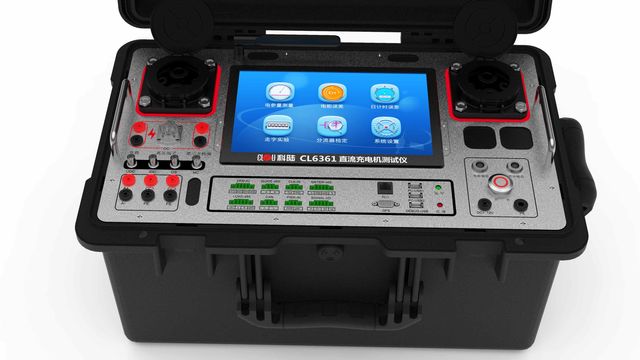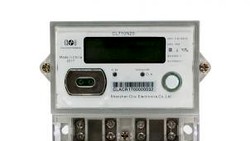Electric vehicles (EV) have gained significant traction in recent years as a sustainable alternative to traditional gasoline-powered cars. As the adoption of EVs continues to grow, one critical aspect that demands attention is the charging infrastructure. The future of EV charging holds immense potential, not only in terms of speed and convenience, but also in achieving a greener and cleaner energy ecosystem. Let's explore the key trends and technologies that will shape the future of electric vehicle charging.
Fast Charging Technologies
The need for faster charging times is a primary focus in the development of EV charging infrastructure. The current standard for fast charging is the DC (Direct Current) fast charging, which typically operates at power levels of around 50 kW to 350 kW. This allows EVs to gain a significant charge in a relatively short time, ranging from 30 minutes to a couple of hours, depending on the battery capacity.
However, advancements in fast charging technologies are pushing the boundaries even further. Ultra-fast charging systems, such as high-power chargers and extreme fast-charging solutions, are being developed to dramatically reduce charging times. These technologies aim to operate at power levels exceeding 350 kW, with some prototypes reaching up to 1 MW (1,000 kW) of charging power.
These ultra-fast charging systems have the potential to revolutionize EV charging by significantly reducing charging times to just a few minutes. For example, with a high-power charger operating at 350 kW, an EV with a 500 km range could be charged to 80 % capacity in approximately 15 minutes. Such advancements bring EV charging closer to the convenience of refuelling a conventional vehicle, making it more accessible and appealing to a wider range of users.
These high-power and extreme fast-charging technologies require robust infrastructure and compatible EVs capable of handling the increased charging power. Additionally, considerations such as battery chemistry, thermal management, and grid capacity need to be taken into account to ensure the safety and longevity of the vehicle's battery.
Intelligent Charging Infrastructure
The future of EV charging goes beyond speed. Intelligent charging infrastructure is key to optimizing energy usage, minimizing the strain on the electrical grid, and ensuring a seamless charging experience for EV owners. One of the concerns frequently raised by EV owners is the dilemma of half-empty batteries in the morning, especially when they have a long commute ahead.
However, with intelligent charging systems, this concern can be effectively addressed. These systems have the capability to analyse various factors such as electricity rates, grid demand, and the user's driving patterns to optimize charging schedules. By leveraging advanced algorithms and real-time data, intelligent charging infrastructure can ensure that EVs are charged to the desired level by the time the driver needs to hit the road in the morning.
Moreover, intelligent charging infrastructure also enables bidirectional energy flow between EVs and the grid, known as vehicle-to-grid (V2G) integration. This means that EVs can not only draw energy from the grid but also feed surplus energy back into it when needed. This feature offers an opportunity for EV owners to participate in demand response programs, where they can contribute to grid stability by providing energy during peak demand periods or when renewable energy sources are limited.
Integration of Renewable Energy Sources
To truly achieve a fossil-fuel-free charging experience, the integration of renewable energy sources is crucial. EV charging stations powered by solar or wind energy can maximize sustainability and reduce dependency on conventional power generation. This integration can be further enhanced through energy storage solutions, where excess renewable energy can be stored and utilized during peak demand periods. The marriage of EV charging infrastructure and renewable energy sources paves the way for a cleaner and greener transportation ecosystem.
By harnessing solar or wind power for EV charging, we can significantly reduce greenhouse gas emissions and promote a more sustainable future. Solar-powered charging stations utilize photovoltaic (PV) panels to convert sunlight into electricity, providing a clean and renewable source of energy for EVs. Similarly, wind-powered charging stations harness the power of wind turbines to generate electricity, offering another environmentally friendly option for charging.
In addition to the direct use of renewable energy for EV charging, energy storage solutions play a vital role in the integration process. Excess renewable energy generated during periods of high production can be stored in batteries or other storage systems. This stored energy can then be utilized during peak demand periods or when renewable energy generation is limited, ensuring a consistent and reliable power supply for EV charging. The combination of renewable energy generation and energy storage enhances the overall efficiency and reliability of the charging infrastructure.
The integration of renewable energy sources with EV charging infrastructure not only reduces carbon emissions but also helps to alleviate the strain on the electrical grid. By distributing the charging load across renewable energy sources, the demand on conventional power generation is reduced, leading to a more sustainable and balanced energy system. This integration also contributes to the concept of a circular economy, where renewable energy sources power the transportation sector, and EVs, in turn, support the stability and sustainability of renewable energy grids.
Exchangeable Car Batteries
In the pursuit of enhancing the convenience and flexibility of electric vehicles (EVs), the concept of exchangeable car batteries has emerged as a potential solution. Rather than waiting for a lengthy charging session, exchangeable car batteries offer a swift and efficient method to replenish an EV's power. This technology involves the quick removal of a depleted battery and its replacement with a fully charged one, allowing drivers to continue their journey without significant delays.
The exchangeable car battery system operates through specially designed battery swap stations. These stations are equipped with automated mechanisms that facilitate the seamless removal and insertion of batteries in a matter of minutes. By adopting a standardized battery format, compatible across various EV models, the process becomes streamlined and accessible to a wider range of users.
The advantages of exchangeable car batteries extend beyond the convenience of rapid charging. This technology addresses concerns related to limited charging infrastructure and range anxiety, as it allows drivers to simply exchange their depleted battery for a fully charged one, eliminating the need to search for available charging stations. Furthermore, it mitigates concerns regarding battery degradation over time, as users can swap out ageing batteries for newer ones with improved performance.
However, the implementation of exchangeable car battery systems does come with certain challenges. Standardization across different vehicle manufacturers and ensuring compatibility can be complex. Additionally, establishing a widespread network of battery swap stations requires significant investment and coordination among stakeholders in the automotive and energy sectors.
Wireless Charging
Imagine a world where EVs charge effortlessly without the need for plugging in. Wireless charging, also known as inductive charging, holds the potential to revolutionize the EV charging experience. By utilizing electromagnetic fields, wireless charging eliminates the physical connection between the vehicle and the charging station. This technology, when widely adopted, could transform the way we perceive and interact with EV charging, making it more convenient and user-friendly.
At CLOU, our team of engineers and post-doctoral researchers has been actively exploring the possibilities and challenges associated with wireless charging for EVs. While the concept of wireless charging is promising, there are several drawbacks that need to be addressed.
One of the major concerns is the issue of high energy losses during wireless charging. Due to the nature of inductive power transfer, a significant amount of energy is lost during the charging process. This inefficiency not only reduces the overall charging speed but also leads to increased energy consumption, which may hinder the sustainability benefits of EVs. Our engineers are diligently working on improving the efficiency of wireless charging systems to minimize energy losses and enhance the charging experience.
Another challenge is the cost associated with infrastructure deployment. Wireless charging requires the installation of charging pads embedded in the ground or integrated into parking spaces. This infrastructure can be quite expensive to implement on a large scale, making it a barrier to widespread adoption. Additionally, the billing aspect of wireless charging presents a unique challenge. Since there is no physical connection between the vehicle and the charging station, traditional metering methods cannot be used. On-board metering systems would be required to accurately measure the energy consumed during wireless charging.
Calibration of public charging stations
The calibration of public charging stations plays an important role in ensuring accurate and reliable billing. Just like any other electrical measuring instrument, charging stations need to be calibrated periodically to maintain their accuracy and compliance with industry standards.
Calibration is the process of comparing the measurements made by a device to a known reference or standard, and making adjustments if necessary. For charging stations, calibration ensures that the energy delivered to electric vehicles is accurately measured, providing users with transparent and trustworthy charging experiences.

At CLOU, we recognize the importance of calibration in the EV charging infrastructure. With our extensive experience in metering and testing equipment, we offer advanced solutions for the calibration of public charging stations. Our equipment is designed to provide precise and reliable measurements, ensuring that the charging stations meet the required accuracy standards.
By calibrating public charging stations, we can address concerns related to overcharging or undercharging, ensuring that EV owners are billed correctly and trust the charging infrastructure. Calibration also contributes to the overall integrity of the energy measurement and billing systems, fostering confidence among EV users and promoting the widespread adoption of electric vehicles.
Takeaway
The future of electric vehicle charging is fast, furious, and fossil-fuel-free. Advancements in fast charging technologies, intelligent infrastructure, renewable energy integration, and wireless charging are propelling the EV charging ecosystem forward. As we envision a future where EVs dominate the roads, it is crucial to invest in the development of robust and sustainable charging infrastructure that meets the growing demands of EV owners and contributes to a greener planet.
If you have any inquiries or need further information about our charging- and calibration equipment, please do not hesitate to reach out to us. We are here to assist you and welcome your valuable thoughts and comments.
Editor's note: This article was originally published in September 2023 and has been updated for comprehensiveness.





All comments are moderated before being published. Inappropriate or off-topic comments may not be approved.